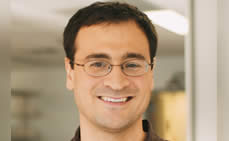A Proposal for Deaf Science Education
By Derek C. Braun, Ph.D.
 We’ve seen a sudden increase and remarkable success in deaf scientists and physicians since 1980, including a MacArthur genius. This cannot be due to cochlear implants, because implantation in children was not widespread until the 1990s; most of the successful deaf individuals whom I know do not have implants. It’s more likely because of legislation, from 1973 onward, securing educational access for deaf individuals, particularly to post-graduate programs.
We’ve seen a sudden increase and remarkable success in deaf scientists and physicians since 1980, including a MacArthur genius. This cannot be due to cochlear implants, because implantation in children was not widespread until the 1990s; most of the successful deaf individuals whom I know do not have implants. It’s more likely because of legislation, from 1973 onward, securing educational access for deaf individuals, particularly to post-graduate programs.
As a deaf scientist and educator, I observe that deaf education is commonly viewed through the lens of fixing what is broken, as opposed to focusing on students’ usually intact mental faculties. I have observed teachers not fluent in American Sign Language (ASL) assume that their deaf students were not intelligent, because the teachers could not understand their rapid, complex ASL. During my graduate program’s orientation, a professor asked me “Can you read and write?” The interpreter and I could barely believe the question.
Recently, a New York Times reporter asked me whether I thought ASL was an obstacle in deaf science education. ASL is a relatively nascent language with a smaller vocabulary than English. I was happy to report — and lucky that the reporter understood — that spatial representations are integral to ASL grammar, and this is a benefit. One student recently told me that she could not imagine the extreme difficulty that speaking teachers must have in explaining concepts in science because spoken language is so linear. Deaf people may have other advantages as well. Dr. Peter Hauser at Rochester Institute of Technology has found that in areas of the brain normally used for hearing, this loss is reassigned, producing cognitive gains in visual perception.
The prevailing attitude that deafness represents a constellation of losses, particularly cognitive ones, permeates our society and taints deaf education with low expectations. Even deaf college graduates natively fluent in ASL who wish to become primary or secondary educators of deaf children must obtain a Master’s degree in special education, yet they can teach hearing children without one!
Until now, deaf individuals have not had many educated deaf role models to emulate, to adamantly hold up as examples for disbelieving teachers, insisting that “if she did it, then I can, too!” At Gallaudet University, we recently built a biological research laboratory where deaf undergraduates are mentored by deaf faculty and staff, with meetings conducted in ASL. We have trained 31 deaf students since opening in 2009. Our assessment data show that our students’ attitudes toward science, and confidences in their abilities, have improved significantly beyond the national average for students enrolled in similar undergraduate research experiences.
I propose retiring the paradigm of “the deaf” as holistically broken. Let’s have the expectations in deaf education match those of hearing peers, like the deaf superintendent successfully did at Maryland School for the Deaf. Let’s recognize American Sign Language as a language and solution, not as part of a syndrome. Let’s cultivate educated deaf role models. Ultimately, let’s create an environment where deaf children grow up with both the subtle and overt expectation that they can accomplish great things. #
Dr. Derek C. Braun is the director of the Molecular Genetics Laboratory and a biology professor at Gallaudet University.
